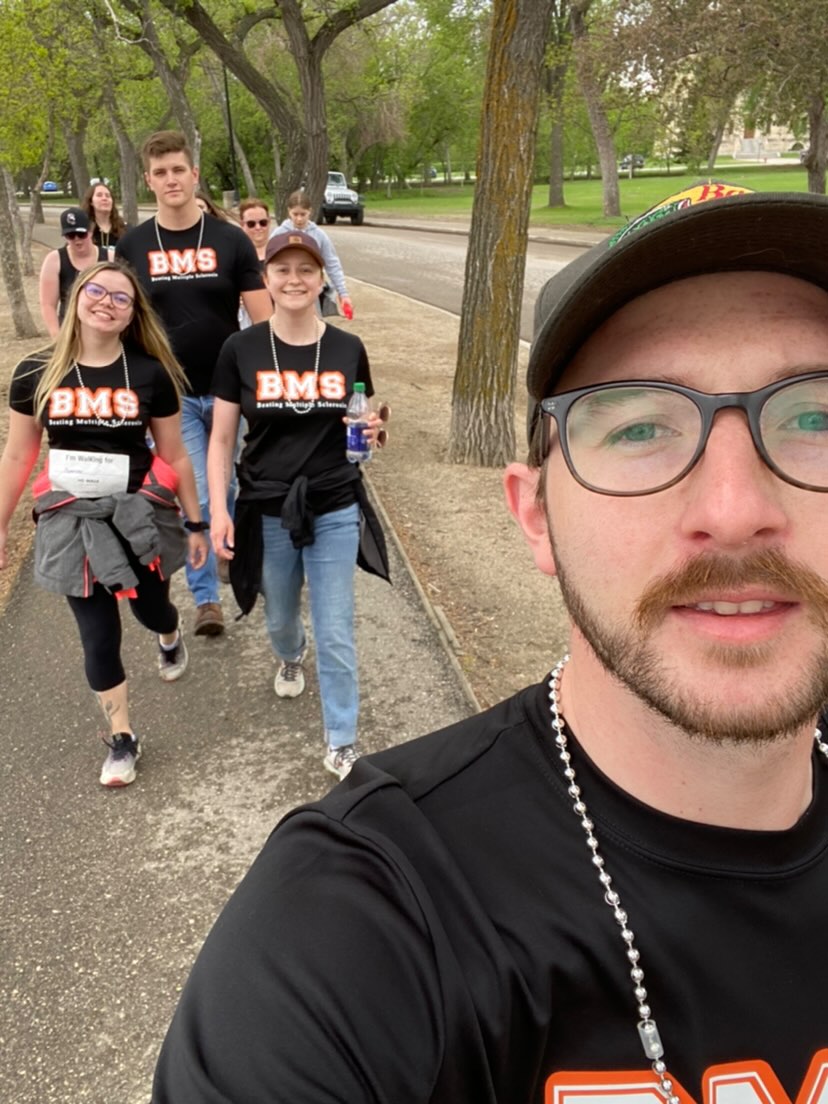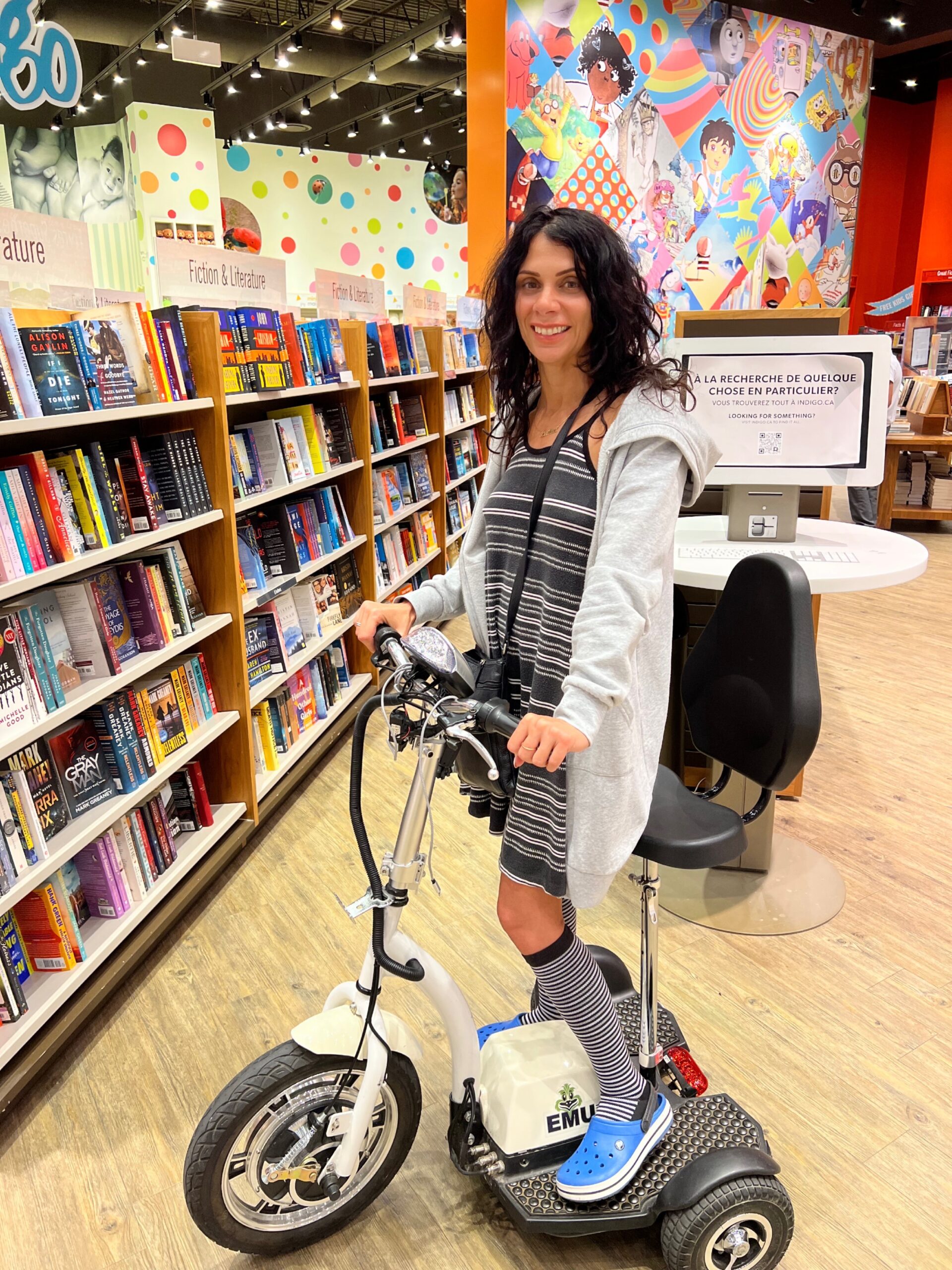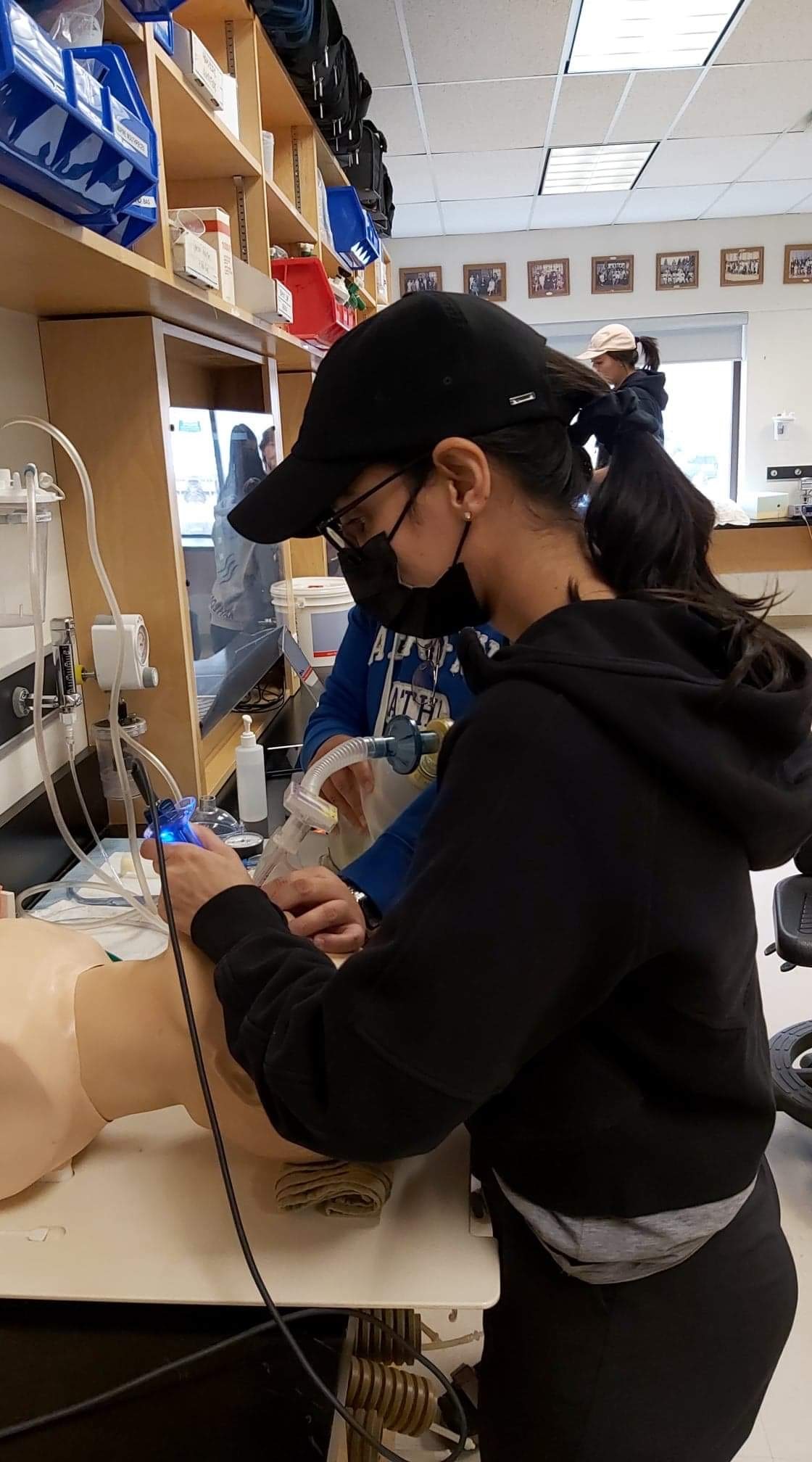The new school years means new friends, teachers, classrooms, and experiences. It’s normal for anyone to feel anxious, but for students, parents, and teachers living with MS, back-to-school anxiety is often elevated, as every day can be unpredictable. Throughout the month of September, we’ll be sharing school experiences and tips from members of the MS community to help ease the transition from vacation-mode to school-mode. Whether you are a student, parent, or teacher living with MS or a student, parent, or teacher connected to someone living with MS, we hope you find these stories beneficial and helpful.
Spencer – Teacher living with MS
My first reaction to being diagnosed with MS in 2019 was anger. I felt like my body was failing me. After my last relapse, my legs didn’t allow me to run or participate in the sports I loved to play and that was a tough pill to swallow at the time.
While hearing that I had MS was a shock, I had known that my body wasn’t right for quite some time. Looking back, I had my first relapse in January of 2015. I had lost all feeling in my right arm and hand but had been told it was carpal tunnel syndrome. My memory started getting spotty during this time frame as well. While it was a tough diagnosis, a part of me felt relieved that I could start treatment.
Once I started my treatment, I began to feel like I had gained some control of my life again. Through physiotherapy, my balance and leg strength improved. Now I’m incorporating a better diet and improving my sleep schedule, which in addition to drinking plenty of coffee, has really helped me manage my fatigue.
Being consistent with my disease-modifying therapy helped my outlook for the future. I know that while some things are out of my control, I can incorporate lifestyle habits to stay healthy.
I currently work in Val Marie, Saskatchewan as a social, physical education, art, and carpentry teacher to students in kindergarten to grade 12.
The most rewarding part of being a teacher is getting to be around such incredible students. In a small-town school, you really get to know the students and their families, and I appreciate that so much. Seeing my students progress towards their goals is incredibly rewarding.
Fatigue and brain fog both affect my life as a teacher. After a long day of school, my energy levels can feel completely depleted. This can make planning for classes, marking assignments or tests, and home tasks difficult. Fatigue can be a challenge during the day, but coffee has become a great friend of mine! The other area I struggle with is accepting that I’m not the athlete that I used to be. As a physical education teacher, I like to be active with the students and I sometimes forget that I’m not as strong or coordinated as I once was.
I think having MS has helped me form stronger connections with my students. It has allowed me to improve my ability to create adaptations for games and skills that students may have struggled with.
When it has been a long school week, fatigue can set in, and it can be hard to complete necessary tasks towards the end of the day. I always try to make sure I have backup plans made for days where my body can’t teach a lesson to the best of my ability. This could include lessons such as independent inquiry questions, where the students really get to control their own learning.
My top back-to-school tip as a teacher living with MS is to make sure that you find time to care for your medical needs. Whether this is through naps, walks, or any other method of winding down. It’s so important to keep yourself in tip top shape in order to be the best teacher that you can be.
Anna – Mother living with MS
For the first few years after I was diagnosed with MS, the disease was invisible. There were many times I was experiencing symptoms, like fatigue and loss of balance, but no one could tell. I did whatever I could to not let it interfere with my life. I was determined to stop the progression, but I kept slowly and steadily declining. In 2015, about six years after my diagnosis, my leg disability worsened dramatically.
In 2018, nearly 10 years after my initial diagnosis, I was diagnosed with Secondary Progressive MS. I now use a power-chair and can no longer walk without the help of a mobility aid. Throughout this entire time, I have never given up on the idea that I will get better. I’ve never stopped trying to improve myself physically and I never will.
At first, I was determined to ‘beat the disease.’ When that didn’t happen, there was a time when I blamed myself and experienced anger about what I could have done better or differently. I don’t feel like that anymore though, because I truly believe that this was the path I was meant to follow.
I would not change anything, as I’m incredibly blessed with 3 children. My daughter is 19 years old and is studying molecular biology in university. My middle son is 17 years old and is studying health sciences in college, and my youngest son is 13 and plans on studying science when he goes to college.
There was a time where I often experienced moments of insecurity, feeling overwhelmed, frustrated, guilty, or angry because I felt I should be doing more as a mom. I was having a hard time keeping up with daily activities because of fatigue. There were even times where physical limitations prevented me from attending school events because accessibility was simply impossible.
I no longer feel that way, as I’ve learned to allow myself to compromise. I now celebrate and appreciate what I’m still able to accomplish each day, given the energy that I have.
At home, I focus on activities I can easily do with my children like puzzles, games, watching movies together, and going for drives. The best thing we can give our kids is presence. Don’t let thoughts about your physical abilities have you believe that you are less of a mother in any way.
It can be challenging enough being a mom and adding having a chronic illness to that is a whole other ball game. We should slow down or ask for help when we need it in order to be a better version of ourselves for our kids.
Regularly experiencing MS fatigue can be exhausting, so planning ahead for major events is essential. Back-to-school is one of those times where time management is so important. Preparing early for this season and being organized makes all the difference.
I perform all the back-to-school shopping (materials, books, and clothing) during the summer months—spreading it out so it’s not as tiring right before school starts. My kids are also very involved in the process and help with shopping and labeling. Online shopping is also helpful as it takes a lot less energy than physical shopping and is more convenient.
I think the more independent our children are, the more we prepare them for life. From an early age, I encouraged my kids to manage their school agendas and workload on their own, without me having to be on top of it. My kids have also always helped with the preparation of their breakfast and lunches.
Driving my kids to and from school when multiple schools are involved can be challenging and tiring. It can get frustrating adjusting and accommodating to everyone’s new schedules, but I’ve learned to slow down, turn the radio up, and not get too caught up in it. Eventually we always make it work out and make it home together, so I might as well enjoy the ride and maybe even pick up some drive-through along the way!
Kajal – Student Living with MS
When I was first diagnosed with MS in 2020, I was terrified. Over time I have come to terms with living with the disease, but I’ve also become critical of my symptoms and tend to analyze them under a microscope. I find that I notice symptoms more often now that I’m aware of my diagnosis.
The largest obstacle I have faced due to my MS is accepting my diagnosis. At times, I blame myself for getting MS and think that I did something that caused it. I’m not always able to control the depression and anxiety that I experience. My symptoms become worse during a relapse and sometimes I push my friends and family away. My greatest worry living with MS is my ability to live a life of normalcy and have a family of my own one day.
I’m currently a student in the Respiratory Therapy program at Thompson Rivers University in Kamloops, British Columbia. I hope to be working in a neonatal intensive care unit or a pediatric intensive care unit at a hospital in the Okanagan after I graduate.
The Accessibility Services team at Thompson Rivers have made things so much easier for me and do not make me feel like I have a disability. Aside from providing accommodations for classes and exams, they are continuously reaching out to me to make sure that I’m doing well. Every time I go in, we can talk about anything and everything, even though it may not be in the scope of the services they provide.
I experience frequent chronic migraines and numbness in my legs and arms, which make it difficult to attend classes and walk around campus. Studying can be a struggle because sometimes I experience brain fog and have a difficult time focusing on material and retaining information.
I can’t attend classes when I am in the middle of a relapse, as I’m not able to put any weight on my legs. I have crutches that I’m able to use whenever needed, but it can be difficult to get across campus with them. I’m not able to study the same way I used to prior to my diagnosis. Sometimes when I study, I can’t recall any information the next day.
Thankfully, all my program’s faculty are aware that I have MS so each time I experience a relapse, I don’t have to explain myself again. They are able to accommodate me by splitting exams into two time slots so I’m not sitting for hours, providing me with a designated note taker for missed classes and lectures, and I also have the option to do alternative labs and projects instead of oral presentations. They are incredibly supportive of my studies and ensure that I’m always putting my health first.
My top back-to-school tip is to reach out to your school’s accessibility services team and ensure your faculty is aware that you have MS so they can support you early on. Half of my burden was removed when I opened up to my professors about my diagnosis, because then they knew what I was dealing with and were that much more supportive. It’s also helpful to find an accountability partner who can assist you with certain school tasks when you aren’t able to attend classes, such as taking notes and recording lectures. Try and keep a positive mind and bring good vibes into your life, especially when it comes to your education. I always try to keep my energy high when working on schoolwork, studying, or before writing an exam.





Sending you prayers, I was diagnosed in 2010 and seemed to go down hill quickly. In six years I could no longer work and had real problems with balance and joint pain. Brain fog was really bad sometimes. I took rebif and had a lot of problems and had to quit. I have been on techfadera (not spelled right) for a few years and have several side effects. I felt lost and decided to quit my meds due to side effects. Our care provider introduced me to Ayurvedic treatment. I had a total decline of all symptoms including vision problems, numbness and others. Sometimes, i totally forget i ever had MS. Visit Natural Herbs Centre web-site I am very pleased with this treatment. I eat well, sleep well and exercise regularly. God bless all MS Warriors
After my Multiple Sclerosis diagnosis 2 years ago, i stopped all the Multiple sclerosis medicines prescribed due to severe side effects, and decided look into alternative approach. My primary care provider introduced me to MS-4 Protocol from uinehealth centre . c om and i immediately started on their Multiple Sclerosis treatment, this MS-4 treatment has made a tremendous difference for me. My symptoms including muscle weakness, fatigue, mood swings, numbness, double vision and urinary retention all disappeared after the 4 months treatment!